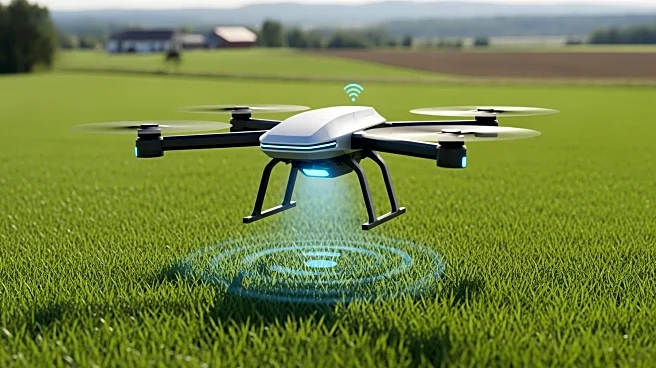What's Happening?
The increasing use of artificial intelligence in agriculture is raising significant privacy concerns regarding farm data. Todd Janzen, a managing partner at Janzen Schroeder Ag Law, highlights the need for companies to license data from farmers, as AI
tools require substantial data for training. There is a growing concern that AI might access information that farmers prefer to keep private. To address these issues, tools like the Ag Data Transparency Evaluator are being developed to ensure proper storage and handling of farm data. Janzen emphasizes the importance of initiatives aimed at protecting farmers from data misappropriation or unexpected usage by companies.
Why It's Important?
The integration of AI in agriculture presents both opportunities and challenges. While AI can enhance productivity and efficiency, it also poses risks related to data privacy and security. Farmers could potentially lose control over their data, leading to misuse or exploitation by third parties. Developing sound policies around AI usage is crucial to safeguard farmers' interests and ensure that technological advancements do not compromise their privacy. This issue is particularly relevant as the agricultural sector increasingly relies on data-driven technologies to improve crop yields and manage resources effectively.
What's Next?
Efforts to establish clear policies and guidelines for AI usage in agriculture are expected to continue. Stakeholders, including legal experts and industry leaders, may push for regulations that protect farmers' data rights. Additionally, there could be increased collaboration between technology providers and agricultural communities to develop transparent data management practices. As AI becomes more prevalent, ongoing dialogue and policy development will be essential to balance innovation with privacy concerns.
Beyond the Headlines
The ethical implications of AI in agriculture extend beyond privacy concerns. There is a need to consider how AI might alter traditional farming practices and impact rural communities. The shift towards data-driven agriculture could lead to changes in employment patterns and require new skills from farmers. Furthermore, the concentration of data control in the hands of a few companies could influence market dynamics and power structures within the agricultural sector.















